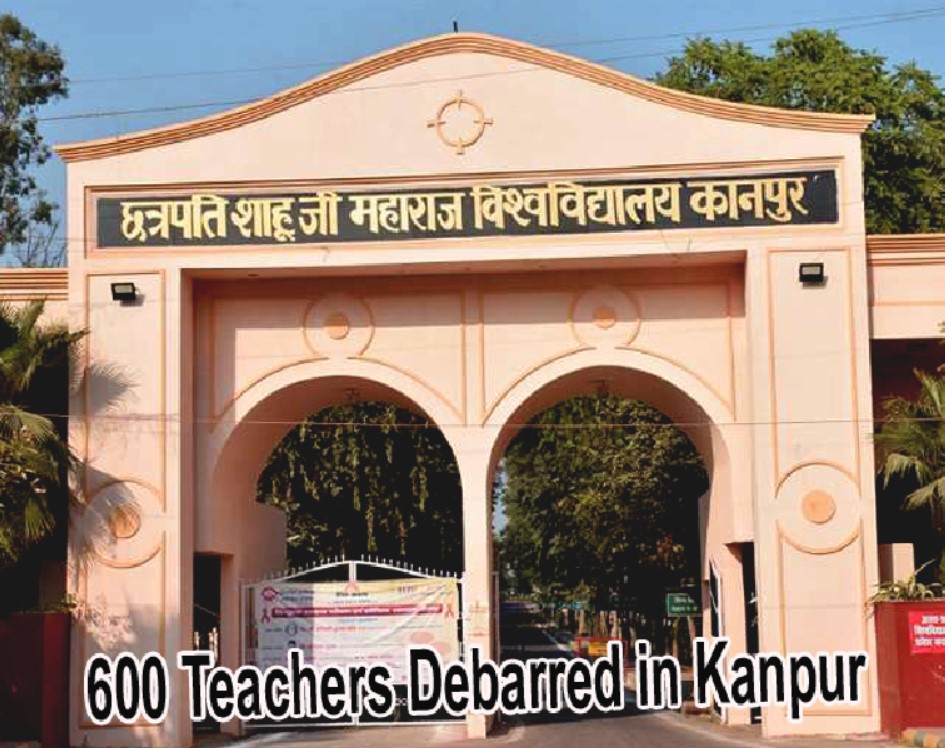Meta Description:
In a significant move to uphold academic integrity, the Uttar Pradesh Board has debarred 600 teachers in Kanpur for awarding excessive marks in practical examinations. This article delves into the details of the incident, the implications for the education system, and the measures being taken to prevent such occurrences in the future.
Introduction
Academic integrity is the foundation of an educational system. In an unprecedented move in the academic world, the Uttar Pradesh Board has dismissed 600 teachers in Kanpur for alleged over marking in practical assessments. The board has emphasized that they are determined to uphold the integrity of the examination and will ensure that the marks given to students are reflective of their actual academic performance.
The Case: A Deeper Dive
The Uttar Pradesh Board decided to disqualify 600 teachers after it had been determined that these teachers gave out unacceptable marks during practical assessments. Actions, such as these, lead the evaluation in question to be misleading and make the work of the genuine students in achieving high marks worthless. After an inquiry was conducted on the thought process behind giving the inflated marks, the board’s actions were justifiable in preventing further damage to the credibility of the assessment process.
Consequences for the Educational System
The expulsion of so many teachers has numerous consequences:
- Loss of Trust: Students, parents, and stakeholders will likely begin to distrust the evaluation system altogether.
- Implications for Students: An inflated mark means a student will advance academically with an unearned grade, which may more readily place the student in an uncomfortable or unfamiliar position.
- Teacher Accountability: This incident is a good example of the need for ongoing supervision and assessment of the ethical practices of educators.
Preventative Action and Reform
To respond to this incident, the Uttar Pradesh Board has implemented a variety of action:
Enhanced Monitoring: Stiffer OTA supervision during practical examinations in order to deter fraud.
• Training Programs: Developing workshops and training sessions for teachers to reinforce ethical practices for evaluation.
• Transparent Evaluation Systems: Creating systems that would allow for the cross-verification of marks awarded in practical exams.
The Greater Context: Academic Integrity in India
The situation in Kanpur is not an isolated case. There are a number of incidents across India indicating difficulties in supporting academic integrity:
• Chhattisgarh: The Chhattisgarh Board of Secondary Education has banned 101 teachers due to negligence in checking Class 10 and 12 board exams.
• Jaipur: A government school teacher has been suspended for awarding marks for Class 10 science exam papers without properly checking them.
• Uttar Pradesh: Two professors at Veer Bahadur Singh Purvanchal University were suspended after students passed exams by writing “Jai Shri Ram” and names of cricketers on the answer sheets.
These incidents show that systemic reforms are urgently needed to maintain the credibility of the education system.
Conclusion
The debarment of 600 teachers in Kanpur is a vivid value of the issues faced by the Indian education system in relation to academic integrity. The action taken by the Uttar Pradesh Board is positive in some ways, it is also a reminder that vigilance, systemic reforms and public commitment to flagging ethical standards for education cannot be stagnant. Only through firm commitment will we be able to expect that academic evaluations are fairly and accurately reflective of students’ abilities and their work.
SEO Keywords:
- Kanpur teachers debarred
- Uttar Pradesh Board examination malpractice
- Academic integrity in India
- Practical examination grading issues
- Education system reforms in Uttar Pradesh
![]()

